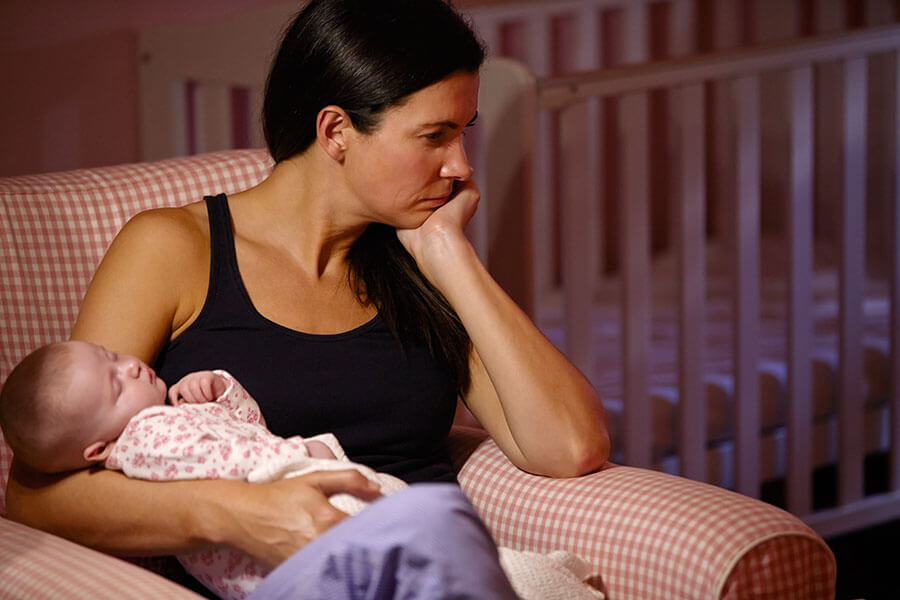10/12/2023
10/12/2023

NEW YORK, Dec 10: Ask any person who’s been pregnant if they have any lingering health problems after childbirth, and get ready to hear a laundry list of issues. Long-term health effects caused by labor and delivery may be more common than we realize, according to a new study published in “The Lancet Global Health”. But just because postpartum complications are common doesn’t mean they’re normal, or something you simply have to deal with for the rest of your life.
Every year, more than 1 in 3 women (at least 40 million) globally are likely to experience a postnatal condition in the months or years following childbirth. Those can range from low back pain (affecting 32% of women) to pain during intercourse (35% of women), urinary incontinence (8% to 31%), depression (11%-17%), anxiety (9% to 24%), fear of childbirth (6% to 15%) or secondary infertility (11%).
Looking at these statistics proves it’s clear that more recognition of the physical and psychological effects of childbirth is needed, as most of these issues often go under-recognized and are therefore likely underdiagnosed.
Most postpartum women see their provider at 6 or 12 weeks postpartum for a single checkup and then are left on their own to deal with nagging problems like low back pain or pain during sex, while also caring for a newborn. And that’s part of the problem. “The historical limitation of postnatal care services to the 6 weeks after birth is also a contributing factor,” the study authors write. As many of these issues often set in after the 6-week mark, it’s simply not sufficient care for most women.
“Conditions such as depression, urinary and anal incontinence, and sexual dysfunction can be caused or exacerbated by pregnancy and childbirth but might only present months, or even years, after childbirth. By this time, women are no longer accessing postpartum care services…” they state.
Aside from impacting health, these issues can come with long-term social and economic consequences, too.
More rarely, serious postpartum complications can set in after childbirth, such as pelvic organ prolapse, post-traumatic stress disorder, thyroid dysfunction, mastitis, nerve injury, psychosis, and blood clots, all of which can carry a significant impact.
“Many postpartum conditions cause considerable suffering in women’s daily life long after birth, both emotionally and physically, and yet they are largely underappreciated, underrecognized, and underreported,” said Dr. Pascale Allotey, Director of Sexual and Reproductive Health and Research at WHO, who was not involved in the study.
“Throughout their lives, and beyond motherhood, women need access to a range of services from health-care providers who listen to their concerns and meet their needs—so they not only survive childbirth but can enjoy good health and quality of life.”
A recent CDC survey found that nearly half of respondents (44.7%) shared that they felt the need to hold back questions or concerns with their provider during prenatal visits. The survey also found that 1 in 5 American women reported experiencing mistreatment during prenatal consultations. Nearly a third claimed they faced discrimination based on factors such as age, weight, ethnicity, or income level.
The prevalence of postpartum complications is much worse in low- or middle-income countries, the paper states, many of which do not have clinical guidelines in place to properly address these conditions. That lack of focus on basic health issues may explain why 121 out of 185 countries have not significantly reduced maternal mortality over the past 20 years, the WHO states.
The paper’s authors argue the need for a multidisciplinary health system that provides respectful and high-quality maternity services, along with postpartum screening assessments and prompt management of those at risk.
“To comprehensively address these conditions, broader health service opportunities are needed, which should extend beyond 6 weeks postpartum and embrace multidisciplinary models of care. This approach can ensure that these conditions are promptly identified and given the attention that they deserve.”
Gaslighting is unfortunately common in women’s health. If you’re experiencing pain, discomfort or health problems postpartum, no matter how long ago you gave birth, know that you don’t have to suffer in silence. Reach out to your OB-GYN or primary care doctor—and keep reaching out until you’re able to get the help you need and deserve.


